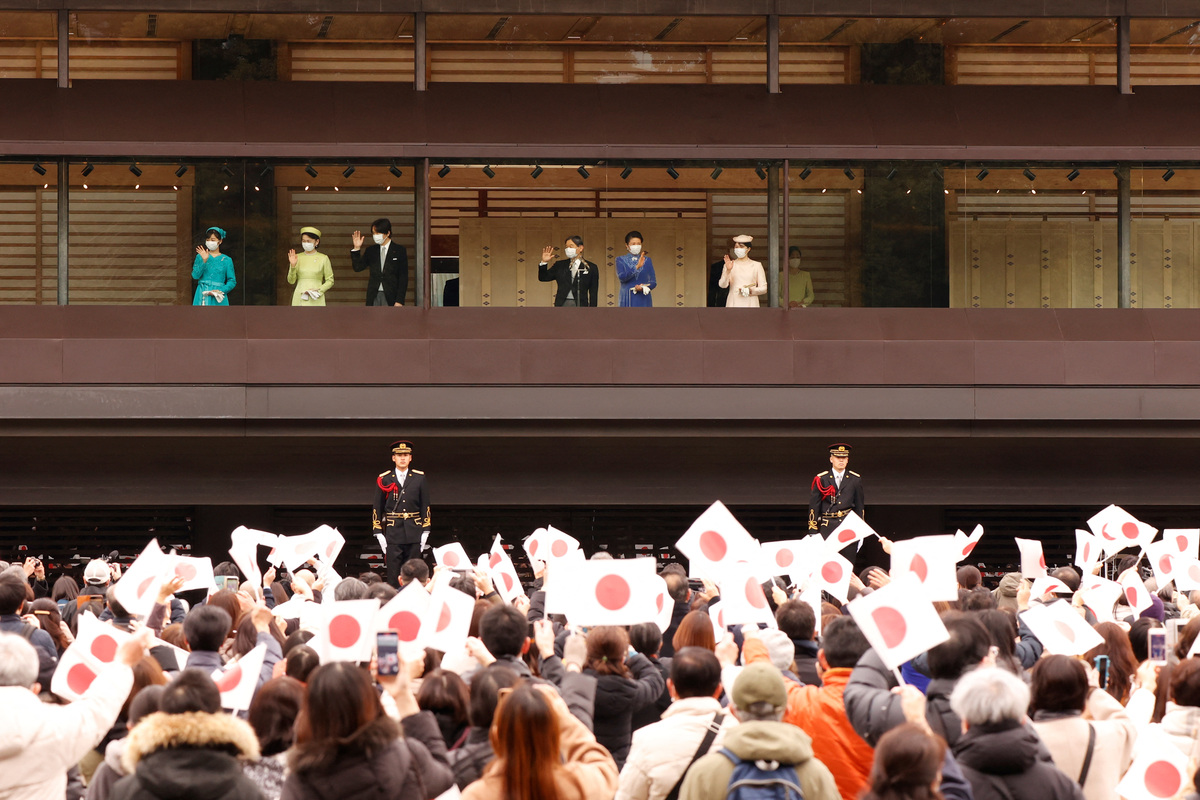
Japanese Emperor Naruhito on Thursday gave his first public birthday address since ascending the throne almost four years ago, after delays due to the COVID-19 outbreak, and urged support for people struggling with inflation and the pandemic.
"Many people are having difficulties in their daily life amid the pandemic and rising prices," Naruhito said, according to a transcript of a news conference released on his birthday, hours before he stood on a palace balcony to accept cheers and well-wishes from thousands of citizens assembled on the grounds below.
"My heart feels pain when I think about people in vulnerable positions, who are aged, who have disabilities, who are in need of support, and people in poverty and their children.

"But it is encouraging and I am thankful to know that there are many people who support these people in vulnerable positions."
Naruhito, who turned 63, was crowned emperor on May 1, 2019, after his father Akihito became the first emperor to abdicate in two centuries.
Public birthday appearances by the emperor are an annual tradition but the event had been suspended from 2020 due to the pandemic.

Last month, Naruhito also resumed the emperor's traditional New Year's address for the first time since the COVID outbreak as the country eases restrictions and returns to normal practices.
Naruhito was joined by his wife, Empress Masako, his daughter Aiko, 21, and his brother Crown Prince Akishino and his wife and daughter, all of whom wore white masks.
Public attendees were limited to fewer than 5,000 individuals chosen from more than 60,000 applicants, according to the Imperial Household Agency, which manages the imperial family's lives. Before the pandemic, the appearances were open to anybody.

"I feel very happy to have my birthday celebrated before the public for the first time," Naruhito said at the palace.
At the press conference, he also expressed deep appreciation to Masako for spending more than half of her life with him.
(This story has been corrected to fix when and where Naruhito remarks were made)

(Reporting by Elaine Lies and Junko Fujita in Tokyo; Editing by Edmund Klamann)







